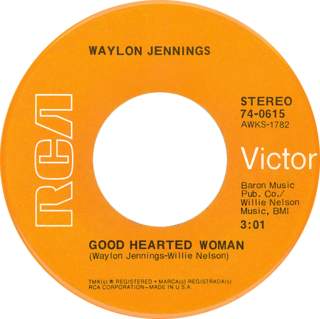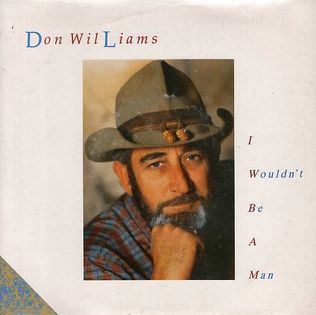Related Research Articles

"Le Freak" is a 1978 funk-disco song by American R&B band Chic. It was the band's third single and first Billboard Hot 100 and R&B number-one hit song. Along with the tracks "I Want Your Love" and "Chic Cheer", "Le Freak" scored number one on the disco charts for seven weeks. The single achieved sales of 7 million and also scored number seven in the UK Singles Chart.
Bubbling Under Hot 100 Singles is a chart published weekly by Billboard magazine in the United States. The chart lists the top songs that have not yet charted on the main Billboard Hot 100. Chart rankings are based on radio airplay, sales, and streams. In its initial years, the chart listed 15 positions, but expanded to as many as 36 during the 1960s, particularly during years when over 700 singles made the Billboard Hot 100 chart. From 1974 to 1985, the chart consisted of 10 positions; since 1992, the Bubbling Under Hot 100 Singles chart has listed 25 positions.

"Heaven" is a song by the Canadian singer and songwriter Bryan Adams recorded in 1983, written by Adams and Jim Vallance. It first appeared on the A Night in Heaven soundtrack album the same year and was later included on Adams' album Reckless in 1984. It was released as the third single from Reckless and reached number one on the U.S. Billboard Hot 100 in June 1985, over a year and a half after the song first appeared on record. The single was certified Gold in Canada in 1985.

"You Ain't Seen Nothing Yet" is a song by Canadian rock band Bachman–Turner Overdrive (BTO). The song was written by Randy Bachman for the band's third studio album Not Fragile (1974). It was released as a single in 1974, with an instrumental track "Free Wheelin'" as the B-side. It reached the number one position on the Billboard Hot 100 singles chart and the Canadian RPM chart the week of November 9, 1974, as well as earning the band their only major hit single in the United Kingdom, peaking at number 2 on the UK Singles Chart. The follow-up single, "Roll on Down the Highway", was also a minor UK hit.
Sammy Reginald Johns was an American singer-songwriter known for his 1975 hit song "Chevy Van", which was originally released in 1973. The song was certified gold by the RIAA on May 5, 1975.

"Smoke Gets in Your Eyes" is a show tune written by American composer Jerome Kern and lyricist Otto Harbach for the 1933 musical comedy Roberta. The song was sung in the Broadway show by Tamara Drasin. Its first recorded performance was by Gertrude Niesen, who recorded the song with orchestral direction from Ray Sinatra, Frank Sinatra's second cousin, on October 13, 1933. Niesen's recording of the song was released by Victor, with the B-side, "Jealousy", featuring Isham Jones and his Orchestra. The line — When your heart's on fire, smoke gets in your eyes — apparently comes from a Russian proverb.

Russell Glyn Ballard is an English musician.
"Shake a Tail Feather" is a song written by Otha Hayes, Verlie Rice, and Andre Williams and originally recorded in 1963 by the Chicago-based group the Five Du-Tones. The original recording reached #28 on Billboard's Hot R&B Singles chart and #51 on the Hot 100.
"It's All in the Game" is a pop song whose most successful version was recorded by Tommy Edwards in 1958. Carl Sigman composed the lyrics in 1951 to a wordless 1911 composition titled "Melody in A Major", written by Charles G. Dawes, who was later Vice President of the United States under Calvin Coolidge. It is the only No. 1 single in the U.S. to have been co-written by a U.S. Vice President or a Nobel Peace Prize laureate.

Josh Turner is an American country music artist. His discography comprises nine studio albums and seventeen singles, all released on MCA Nashville. Turner's first three albums are all certified by the Recording Industry Association of America. His 2003 debut Long Black Train is certified platinum, 2006's Your Man is certified 2× Platinum, and 2007's Everything Is Fine is certified gold. Of his singles, the highest-charting are "Your Man", "Would You Go with Me", "Why Don't We Just Dance", and "All Over Me"—all of which reached number one on the US country singles charts. "Why Don't We Just Dance" is also his highest peak on the Billboard Hot 100, at 35. "Time Is Love" and "Long Black Train" are certified gold as singles, while "Your Man", "Would You Go with Me", "Why Don't We Just Dance" are certified platinum.

"Sara Smile" is a song written and recorded by the American musical duo Hall & Oates. It was released as the third single from their album Daryl Hall & John Oates. The song was the group's first top 40 and first top ten hit in the US, reaching number four on the Billboard Hot 100.
Billy Bland was an American R&B singer and songwriter.
Ralph Stuart Emanuel Donner was an American rock and roll singer. He scored several pop hits in the US in the early 1960s, and had a voice similar to Elvis Presley. His best known song is his 1961 top ten hit, "You Don't Know What You've Got ".

"I Know (You Don't Love Me No More)" is an R&B song written and recorded by American singer Barbara George, released as her debut single in 1961. It became her signature song and her only major hit in United States, reaching No.1 on the Billboard R&B singles chart and No.3 in the Hot 100. It was later covered by various artists, inducing Fats Domino, Cher, Ike & Tina Turner, and Bonnie Raitt. A Spanish version by Marisela topped Billboard's Latin chart in 1988. The Shirelles borrowed the melody of "I Know" for their 1963 cover of "Everybody Loves A Lover".

"Good Hearted Woman" is a song written by American country music singers Waylon Jennings and Willie Nelson.

"I Wouldn't Be a Man" is a song written by Mike Reid and Rory Bourke. Originally recorded by Don Williams, it has also been covered by Billy Dean and Josh Turner. Williams's version of the song was a Top Ten country hit in late 1987–early 1988, while versions by Dean and Turner also charted.

More Johnny's Greatest Hits is a compilation album by Johnny Mathis that was released by Columbia Records on June 22, 1959, and contains the A- and B-sides of five of his singles as well as "Teacher, Teacher", the chart hit that was the B-side of the Johnny's Greatest Hits track "All the Time", and "The Flame of Love," which had not been released before.

John Edward Burgess was a British record producer and production company executive. In the 1960s, he produced hit records by Adam Faith, Freddie and the Dreamers, Manfred Mann, and many other acts of the early era of the British invasion.

The singles discography of American country music artist Lynn Anderson contains 72 singles, three promotional singles, one charting B-side, two music videos and nine other song appearances. She signed her first recording contract with Chart Records in 1966. The following year, her single "Ride, Ride, Ride" debuted on the Billboard Hot Country Singles chart. Also in 1967, her single "If I Kiss You " became her first major hit when it reached number five on the country singles chart. Anderson had a series of hits that reached the top ten and 20 during the 1960s including "Promises, Promises" (1969), "No Another Time" (1968), "Big Girls Don't Cry" (1968) and "That's a No No" (1969).
"That's What Made Me Love You" is a song written by Lawrence Shoberg. It was first recorded as a duet by American country artists Bill Anderson and Mary Lou Turner. It was released as a single in 1976 via MCA Records and became a major hit the same year.
References
- 1 2 3 Sammy Turner at Allmusic.
- ↑ "Sammy Turner born 2 June 1932". From the Vaults. June 2, 2015. Retrieved April 6, 2021.
- ↑ Joel Whitburn, The Billboard Book of Top 40 Hits. 7th edn, 2000.
- ↑ Billboard Singles, Allmusic.com.
- ↑ Roberts, David (2006). British Hit Singles & Albums (19th ed.). London: Guinness World Records Limited. p. 569. ISBN 1-904994-10-5.